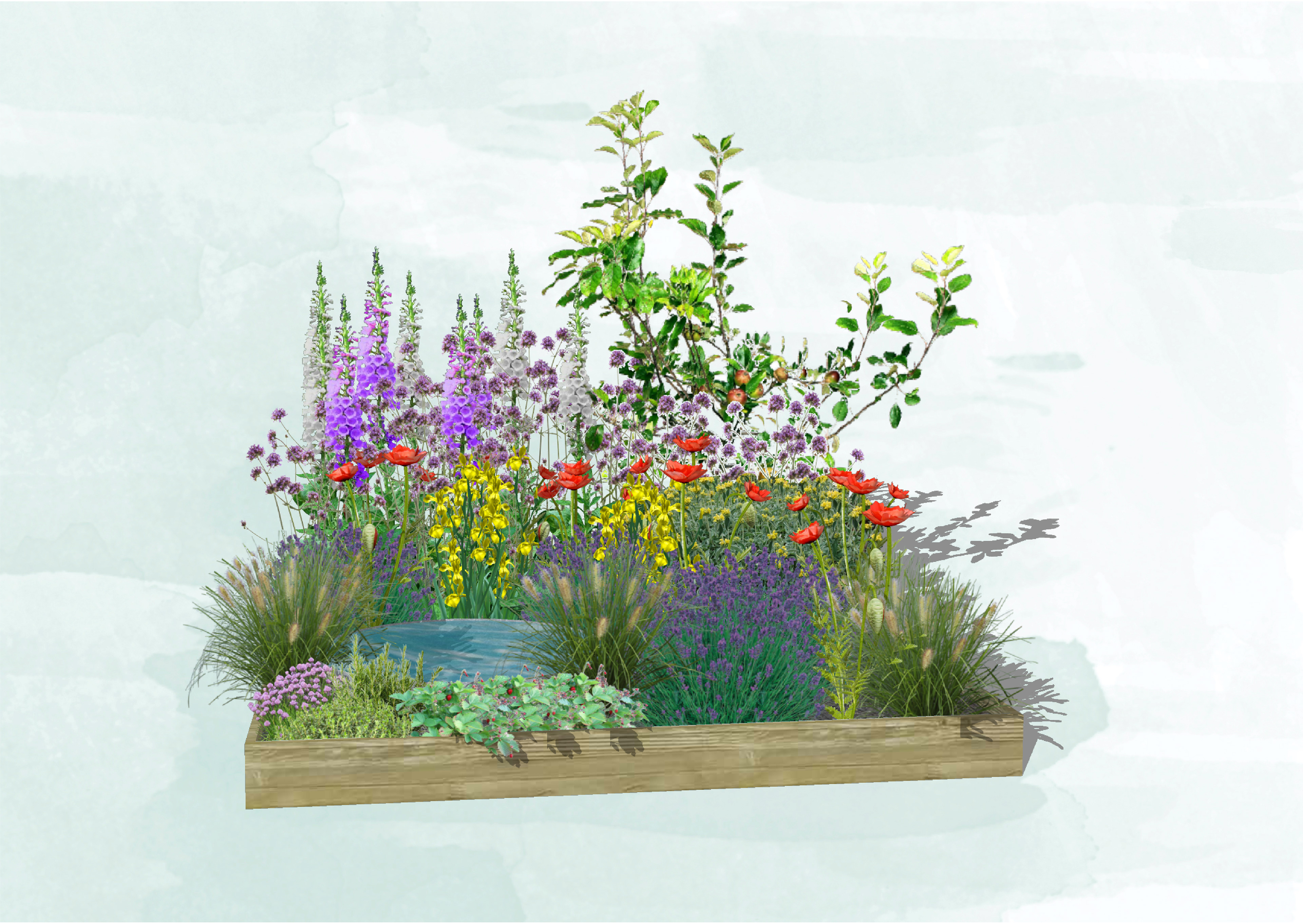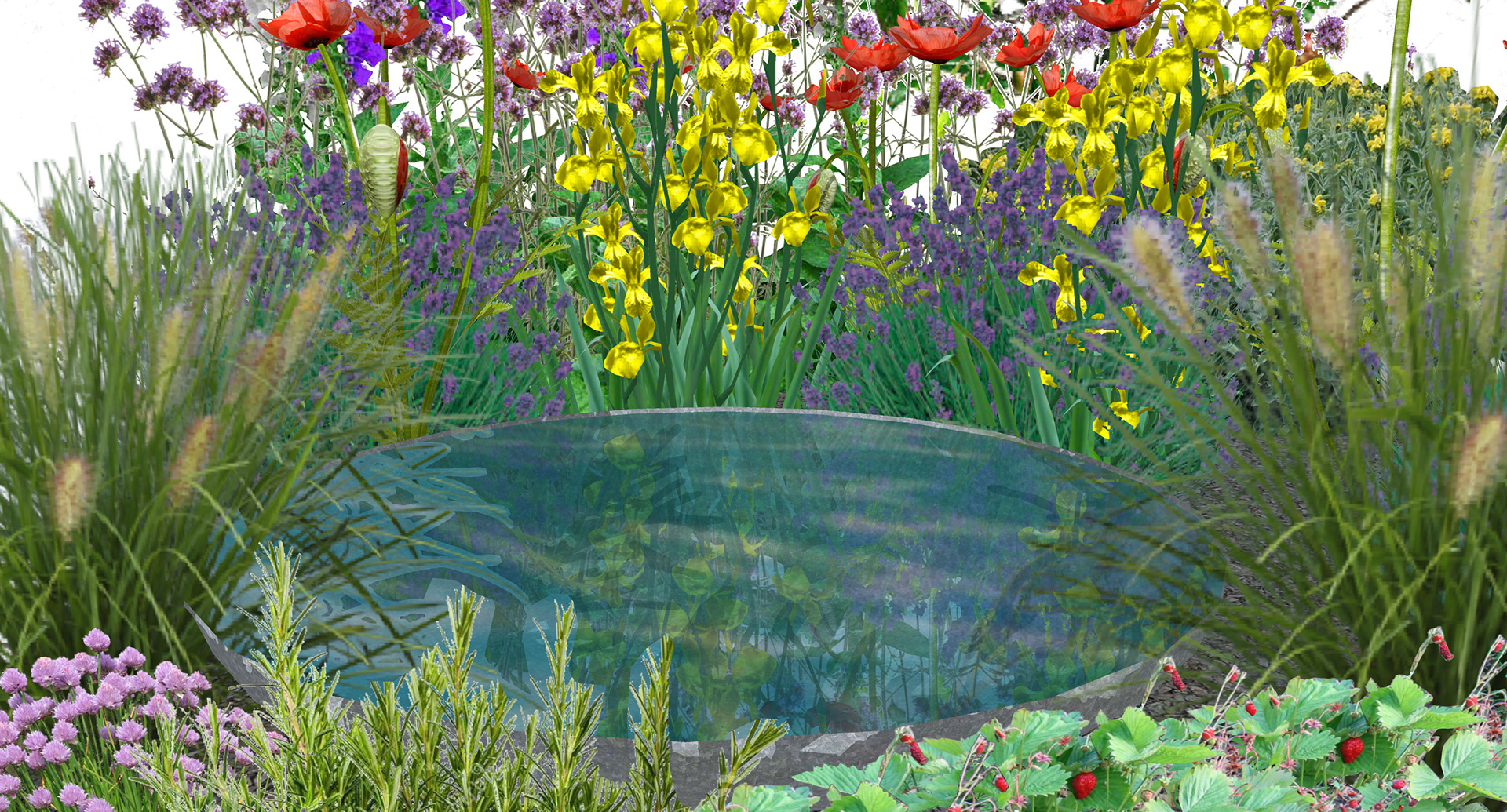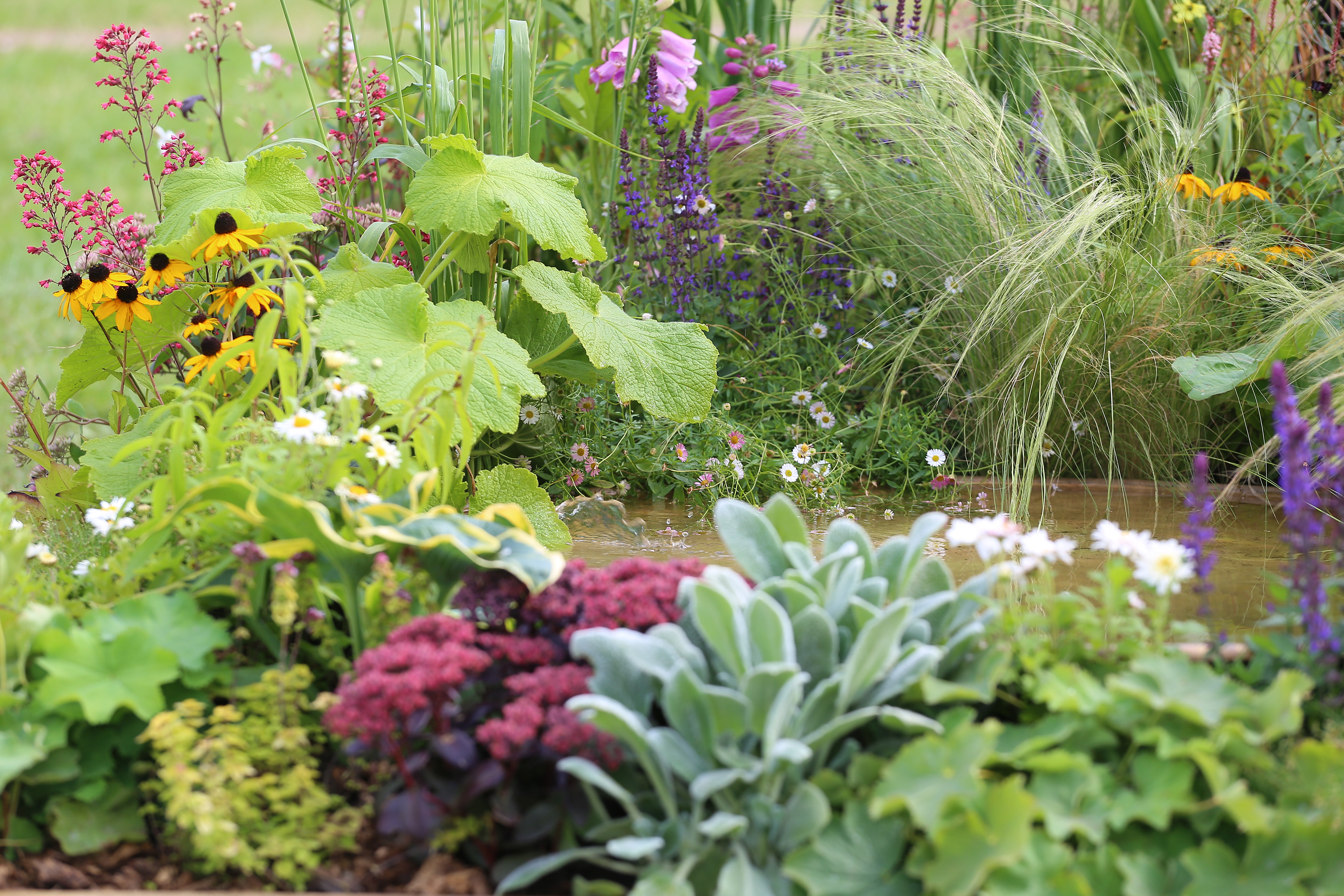The Alzheimer's Society (2014) reports there are over 850,000 people living with dementia in the UK today. Of these, approximately, 42,000 are people with young onset dementia, which affects people under the age of 65. As a person's age increases, so does the risk of them developing dementia. It is estimated that the number of people living with dementia in the UK by 2021 will rise to over one million. Rates of diagnosis are improving but many people with dementia are thought to still be undiagnosed.
Dementia can interfere with everything from memory to communication. For many, this means they don't get to do the things they love anymore, but with gardening found to improve quality of life in many aspects including pain reduction and lowered stress levels, there are certainly benefits to horticultural therapy.
Being involved in gardening can really contribute to a person's wellbeing. Gardening is on-going and ever-changing, there is always something to do! This border shows that even if you have limited space, gardening is an activity that can give great pleasure. It can distract, engage, add to routines and be a focus for physical activity.
This border provides all the opportunities gardening creates for stimulation of all the senses. There are the sensations of touch from the soil, flowers, grasses, and water. There is visual stimulation from an amazing range of colours and shapes. There are the smells of flowers and herbs. Also there are the sounds - birdsong, insects, and rustle of wind in the grasses and leaves; and of course, there is taste - eating fruit and even edible flowers.
The border is low maintenance and can be left to naturalise without becoming overrun and unmanageable.
The border can easily be replicated in gardens, care homes and public spaces to allow people with dementia to have access to a safe space in which they can enjoy gardening and all the benefits alongside.


